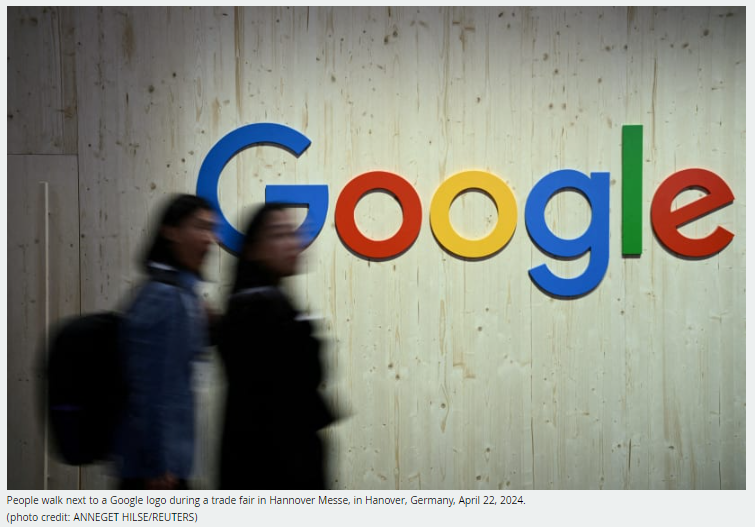Wiz is a leading innovator in cloud cybersecurity. What exactly is that?
The cloud refers to a global network of servers – a vast network of remote servers around the globe hooked together and operating as a single ecosystem. They are designed to store and manage data, run applications, or deliver content or a service such as streaming videos, web mail, office productivity software, or social media.
Rather than access files and data from a local or personal computer, clients access them online from any Internet-capable device – the information is available anywhere and anytime. Rapidly, data is moving from local servers to the cloud.
Amazon Web Services (AWS) and Microsoft are leading providers of cloud services. The global cloud services market is over $500b. yearly and will hit over $2 trillion by 2032, with 17% annual growth.
Security of data and software stored in the cloud is crucial; much of the data are highly sensitive. For instance, Facebook was breached in August 2019 and failed to notify over 530 million users that their personal data were stolen from the cloud and posted to a public database. The data included phone numbers, full names, locations, some email addresses, and other details from user profiles.
This and other cyber crimes have led to a booming demand in services, like Wiz, that keep the cloud data secure from hackers.
Google also offers cloud services but trails its competitors. Its landmark offer to buy Wiz was an effort to get back into the game.
What is Wiz’s story?
Astonishing. In 2012, four young Israelis – Assaf Rappaport, Ami Lutwak, Roy Reznik, and Yinon Costica – spot a major unmet need: cloud security. They are veterans of the famed IDF intelligence unit 8200 and Talpiot, the IDF program for the gifted. They launch Adallom (a play on the Hebrew ad ha’lom, meaning “last line of defense”).
In 2013, Adallom is named one of the 10 coolest security start-ups. And in July 2015, just three years after its launch, Adallom is acquired by Microsoft for $320 million; it becomes a key part of Microsoft Cloud App Security.
The four founders are set for life. But as often happens, they choose to launch another start-up, called Wiz – because, well, it’s not about the destination, it’s about the journey – in January 2020. Venture capitalists and private investors bet heavily on Wiz; they invest $1.9 billion in total.
Wiz has a great product. But venture capitalists focus more on the human capital rather than the innovation. And the four Wiz kids have a terrific track record.
How does a global giant like Google go about buying a start-up for $23b.?
The business daily Globes described the process well. Google starts the ball rolling by sending a letter of intent – “We are interested in possibly acquiring you.” There follows an intense X-ray of the start-up known as “due diligence,” required by law. Teams of experts study every scrap of paper, and subject the start-up to intense prolonged scrutiny. (Note to start-up entrepreneurs: Maintain a systematic paper record – you’ll need it if and when you undergo this process.)
In later stages, the start-up reveals its software code to the potential buyer. Lawyers then draft an agreement. Usually it forbids “shopping” the company to other bidders, to prevent a bidding war.
Globes wonders, if Wiz founders intended to do an IPO from the outset, why did they undergo the whole acquisition process, including due diligence?
Generally, venture capitalists who have invested in a start-up attain a majority of the voting shares – and press the founders to accept a generous exit, so they can compensate their own investors. Why was this not the case with Wiz?
Simple. Somehow, the Wiz founders managed to retain 38% of the shares and most of the voting rights, despite raising $1.9 billion from investors. Thus, they had the clout to implement their decision. Generally, start-up founders find their equity diluted (diminished) and are unable to oppose investors’ decisions.
Another key factor was the fact that the Wiz founders were already exceedingly wealthy from their Adallom exit. They simply did not need the cash.
What does Gil Schwed, the retiring CEO of Israel’s cybersecurity giant Check Point, think about the Wiz fizzle?
He is a realist. Schwed founded Check Point in July 1993 with two friends, Marius Nacht and Shlomo Kramer, and has kept Check Point independent, being an acquiring company rather than an acquired one. Schwed ran his company for more than 30 years, finally turning over the reins to his successor, Nadav Tzafrir, former head of the IDF tech unit 8200. Check Point is one of the few Israeli start-ups that have remained independent.
Schwed told the business daily The Marker that “it will take Wiz many years to reach the sums that they could capture in this [acquisition] deal. But they can do it!” He noted the startling 81% increase in cyberattacks on Israel, creating massive demand for the cybersecurity that Wiz can provide.
Why is Israel’s Finance Ministry the big loser?
Eight years ago, in April 2016, Globes reported that the Israeli Tax Authority decided to lower the rate of tax on the sale of start-up shares from 48-50% to 25-30%. This followed a decision of the courts that payments to employees following an exit comprised income from labor (it does indeed!) rather than capital gains, subject to higher rates.
I send my condolences to Finance Minister Bezalel Smotrich who, according to press reports, strongly urged Wiz founders to take the money and run. The tax revenue from the exit could have helped slash Israel’s growing, worrisome budget deficit.
What is the case for not turning down $23 billion?
Consider Mobileye, founded by Prof. Amnon Shashua. Intel’s acquisition of Mobileye in 2017 was by all accounts a major success. Mobileye expanded its Jerusalem headquarters and became a thriving innovator for Intel in automotive tech. Within four years, Intel took Mobileye public to capture some of the capital value in its acquisition. At the end of 2023, Mobileye employed 3,700 workers.
Wiz might have followed a similar route. There is a reason so few Israeli start-ups remain independent and gain global size. They face shortfalls in skilled engineers, hurdles in raising growth capital, and the ever-present lure of an exit, which offers the deep pockets and global reach of the acquiring giant.
What, then, is the real reason underlying the rejection of the offer?
I believe it is US regulators. Google (known as Alphabet in the capital markets) is highly unpopular at present among regulators in the US and in Europe. It has been fined heavily in Europe and attacked in the US. Google’s acquisition of Wiz requires the acquiescence of the US regulator, the Federal Trade Commission. Its head, Lina Khan, is a fierce and brilliant opponent of Big Tech and has fought some of their acquisitions as restraining trade and creating monopoly power. A long delay in approval of Google’s acquisition, in the FTC and perhaps in the courts, would be highly damaging to Wiz and its goal to double its revenue.
Nico Grant, a reporter for The New York Times, notes that “Google has a testy relationship with US regulators recently, with the Justice Department suing it in two separate antitrust cases…. Regulators under President Biden have taken a hard line against corporate consolidation. The FTC unsuccessfully sued to block Microsoft’s acquisition of the video game company Activision, and Amazon abandoned its $1.7 billion acquisition of iRobot…. A government review of a multibillion dollar acquisition could take more than a year and sap a company of its momentum. That would be precious time for Wiz, which has consistently touted its fast growth.”
My own view? Kudos to Wiz’s founders!
May other start-ups too consider turning down piles of cash and seek to grow as an independent global Israeli company. And may Israel’s tax authorities stop rubbing their hands in glee when they get windfalls from exits – and find ways to help start-ups grow rather than exit.
Israel’s current business model seems built on selling our brains. Why not try to keep them and create more value for Israel and its dynamic young people?■
The writer heads the Zvi Griliches Research Data Center at S. Neaman Institute, Technion and blogs at www.timnovate.wordpress.com.



